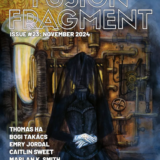
If you’re a genre fan and you can remember a time before Darth Vader was Luke Skywalker’s father, then it’s likely you’ll have felt sad to hear of the death of Gary Kurtz.
Kurtz, who was 78, was of course the producer of Star Wars, back when it was plain old Star Wars, and not Episode IV of anything.
But even before the film was Star Wars, it was The Star Wars. And back then, while the movie was still being made, Kurtz often seemed to be the public face of the movie as he toured fan events in an attempt to convince SF lovers that they should see it.
George Lucas once described the title Star Wars as an “insurance policy”. He and Kurtz believed there were enough genre fans in the US to generate $8million in ticket sales for any movie with a title like that.
But clearly they didn’t feel they had that audience entirely sewn up, because in 1976, Lucasfilm took steps to woo the fans. The film’s publicity and merchandising supremo, Charles Lippincott, began organising convention appearances, way ahead of the film’s release.
The most famous of these pre-release events – largely because it is preserved on video – is the 34th World Science Fiction Convention, or MidAmeriCon, held in Kansas City, Missouri, in September 1976. Lippincott introduced Gary Kurtz and Mark Hamill, and it was Kurtz who did most of the talking. (Full video from the Fan History Project below.)

Kurtz and Lippincott could only show some slides and talk about the movie. It would have been pretty hard to communicate the unique spirit of the film. And with months of effects work, editing and scoring still to be done, the film-makers may not have even discovered that spirit yet.
The first question from the audience was a complaint about Princess Leia’s costume. “Haven’t you ever seen any Amazing covers?” the questioner asked.
“This is a G-rated movie,” Kurtz replied. “And we’ve got to remember women’s liberation at this time. We aren’t sexually selling female or males in this film.”
The second question also seemed pretty hostile. “I don’t want to throw ground glass into this, but are you people intending to lay on us some cliched plot again? Marvellous special effects, but where the hell is the plot in any of these science fiction movies?”
There was some dissent among the fans from that line of questioning before Kurtz said: “It depends on what you mean by plot. This is an action adventure story. It’s set in outer space. It’s just like John Carter on Mars or Flash Gordon or any other action adventure. it’s not a science-oriented story.”
Kurtz went on to field a lot more questions: How did the “light swords” work? Who was doing the music? What was produced on those farms pictured in the slides? Who was the space pirate? Would there be explosions in space?
In the recording, he doesn’t sound quite comfortable, but he has the air of a genial ambassador for the movie, trying to win over an audience that’s been let down too often.
In May the next year, of course, Star Wars would be bigger than anybody could have imagined. But Kurtz would continue to be that honest ambassador, appearing on the documentary The Making of Star Wars and going abroad as the movie’s release widened.
Fans in the UK saw him at a number of events around that time, and Kurtz would end up settling in Britain. As early as December 1977, the British press reported the “quiet, rather dour” 37-year-old saying there would be a sequel, probably set on an ice planet. “You could say it’s become something of a golden albatross around my neck,” he said of the movie.
When asked some time later what Star Wars 2 would be about, Kurtz used the phrase “the Empire strikes back”, and a memorable title was born.
Kurtz parted company with Lucasfilm after the schedule and budget overruns that plagued The Empire Strikes Back, but Star Wars never left him. It remained his golden albatross, but he always seemed willing to talk about it. And his interviews were often a handy counter-balance to the official history.
In that recording form 1976, Kurtz was asked about the future of science fiction films and he said: “I hope they’ll stay around like they should all the time. There’s no reason we can’t have some science fiction every year, just like we have some westerns, some police shows or some anything else.”
Today, of course, there is not only a great deal of science fiction every year, but some Star Wars every year – and we could debate forever the ongoing influence of George Lucas’ movie.
Gary Kurtz will be remembered as the man who got Star Wars made. But back in the days when Star Wars was a film rather than a franchise, he was also the man who persuaded many people to give it a try.
Full disclosure, I met Gary Kurtz in 1977 at the 35th Worldcon and delivered to him a copy of the amateur film I’d scripted, produced by Pilot Productions (HS film group), appropriately titled “Tarzan”. It was the first film parody of Star Wars, predating Hardware Wars by several months. During our trash compactor scene, it was revealed that the trash consisted largely of Heinlein novels, a not so subtle comment on where we felt Star Wars belonged on the SF genre spectrum.










